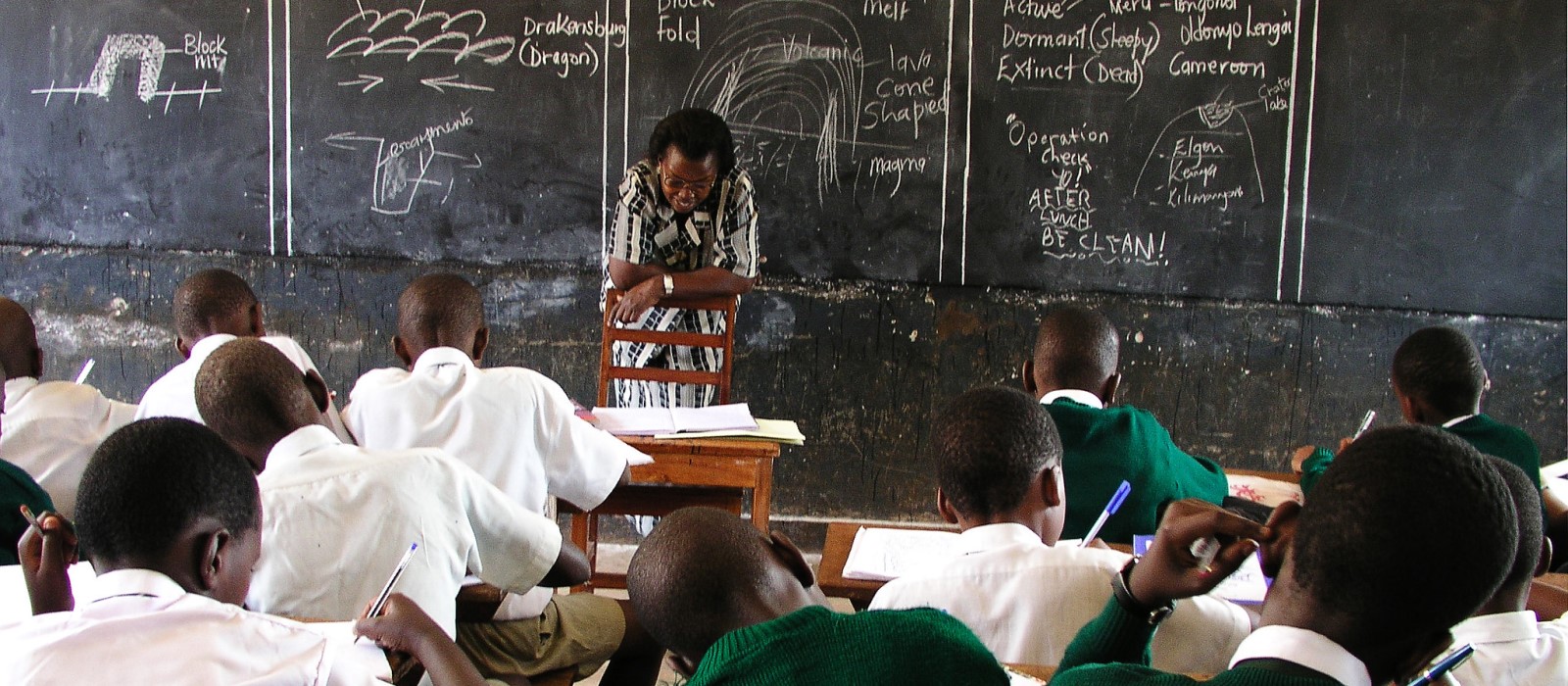Role of Soft Skills in Pregnancy and Work

A primary school in Kampala, Uganda | Arne Hoel / World Bank via Flickr
Policy Context
Youth unemployment is an acute problem in low-income countries, including many in sub-Saharan Africa. For youth in particular, labor market and fertility outcomes can be related. While many sub-Saharan national governments have integrated entrepreneurship training into high school curricula, these programs are primarily based on hard skills (i.e. accounting, finance, and strategy) rather than soft skills (i.e. communication, negotiation, and decision-making). In partnership with Educate!, the research team investigated the role of hard and soft skills entrepreneurship training on the business success, labor market, psychological well-being, and fertility outcomes of Ugandan youth.
Study Design
Beginning in the 2012-2013 school year, 24 schools were randomly selected to receive the Educate! Experience training program and 24 schools served as the control group. Of a total of 1,942 students (43.6% female), 966 received the Educate! Experience program, which included three main components: 1) a 35 -lesson social entrepreneurship and leadership course, 2) one-on-one mentoring sessions focused on personal development with a group mentorship session once per term, and 3) Student Business Development Clubs focused on business development and aimed at helping students design income-generating projects. The program also included a teacher support training and a scholarship for qualified and accomplished candidates.
Results and Policy Lessons
Four years later, researchers followed-up with students to collect data on hard and soft skills, labor market and business outcomes, and psychological measures of well-being. Early results, described in a 2020 presentation, show that young women who participated in the Educate! program were more likely to graduate from secondary school and enroll in tertiary education, suggesting positive impacts on future earnings. The program generated important social spillovers as well. Youth who participated in the Educate! program reported engaging in less risky behavior, delayed family formation, and selected better partners. Participation in the program also led to a reduction in intimate partner violence and favorably shifted gender norms. Researchers are planning an eight year follow-up to answer additional questions including outcomes related to family formation, gender norms, and intimate partner violence. Educate! is scaling its model and working with nearly 50,000 youth through its direct delivery programs and reaching as many as 500,000 students through its education reform partnerships in Uganda, Rwanda, and Kenya, with plans to replicate its model across Sub-Saharan Africa.


